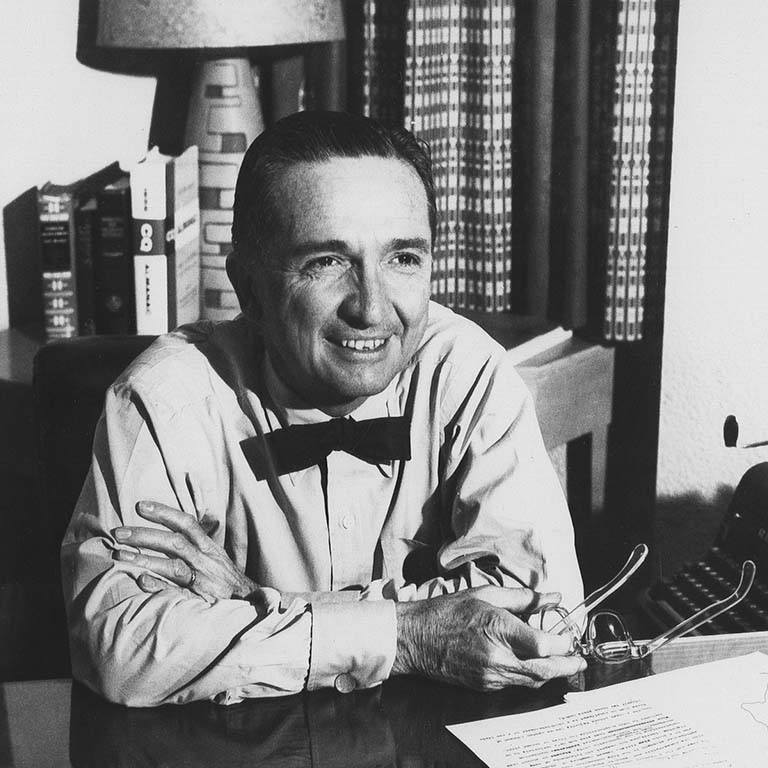The Poynter Project began as a reaction to Americans’ perceptions of their government as the Watergate scandal unfolded in the early 1970s. Then-Chancellor Herman B Wells contacted his former Indiana Daily Student colleague Nelson Poynter, chair of the board of the Times Publishing Company, seeking funding to focus on the declining trust in public institutions. Poynter, having expressed concern about the way the tide was turning, provided a grant for the five-year project.
About the Poynter Center

We cannot compromise with the integrity of the news. Neither can we forget that our privilege of freedom under the First Amendment burdens us with a companion responsibility to exercise it fairly, carefully and in the public interest.
From Nelson Poynter’s guiding principles for news publishing
In 1976, as the project was reaching an end, Poynter presented the university with a second substantial gift to endow a center and establish it in perpetuity. So began the Poynter Center for American Institutions.
Over the decades, the center has focused on political and social issues such as medical ethics and bioethics, professional ethics, political ethics, privacy issues, death and dying, research ethics, moral and political psychology, and teaching ethics in the sciences and humanities. Its name evolved again in the early 1980s, becoming what it remains today: The Poynter Center for the Study of Ethics and American Institutions.

